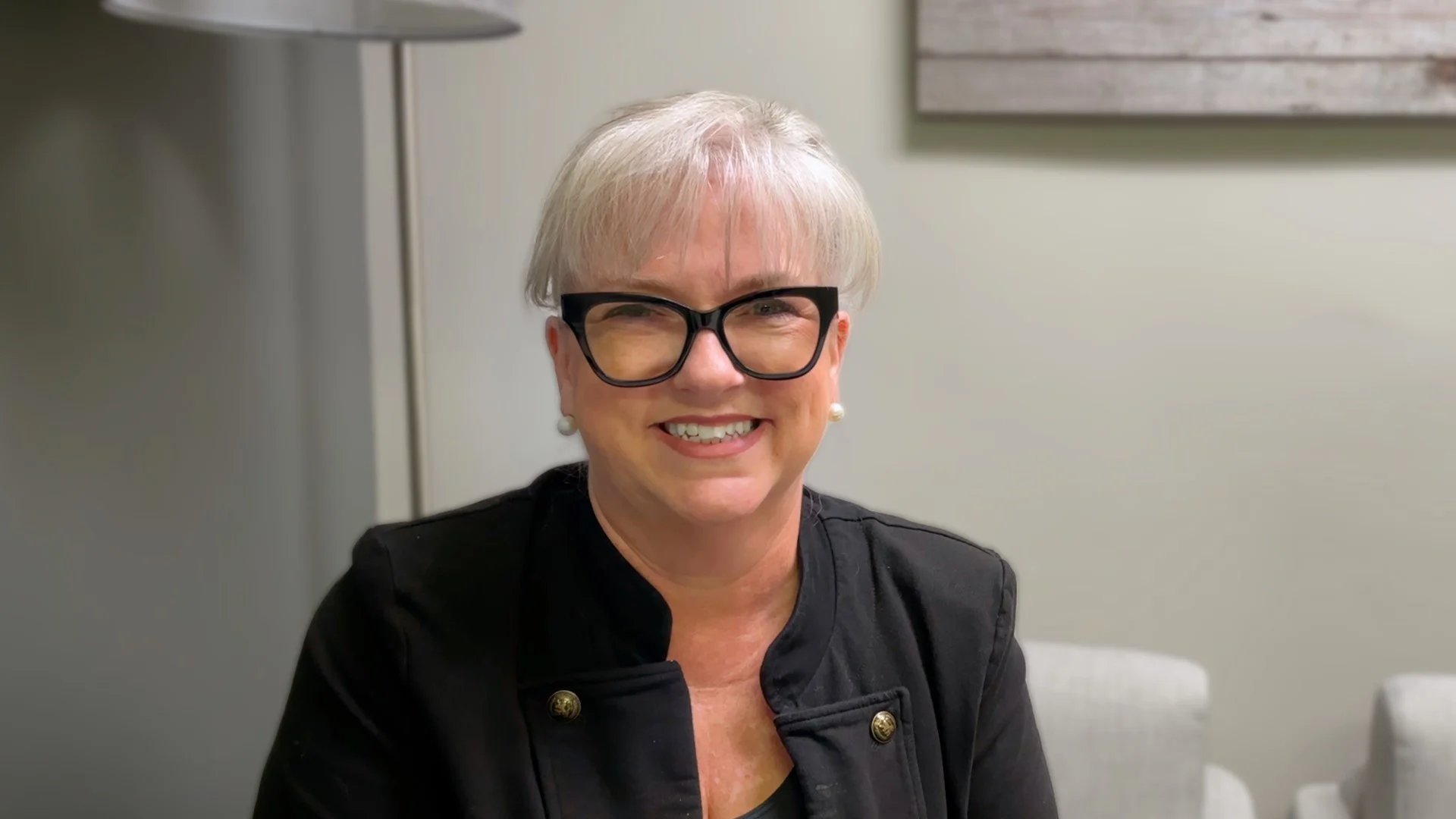
FAQ: A New Era in Hospital Accreditation, Health Equity, and Compliance
This blog post explores the most frequently asked questions (FAQs) from our recent webinar, "A New Era in Hospital Accreditation, Health Equity, and Compliance." Hosted by Becker’s Hospital Review on June 11th, 2024, the webinar covered topics on the changes and advancements in hospital accreditation, health equity, and compliance.
Presenters
Carla Fogaren, R.N. - Principal Consultant, AMN Healthcare
Drew Stevens, J.D. - Of Counsel, Parker, Hudson, Rainer & Dobbs LLP
Christina Cordero, Ph.D., MPH - Senior Project Director, Healthcare Standards Development Division of Healthcare Quality Evaluation and Improvement, The Joint Commission
Q: Is there any thought of implementing a higher minimum of training and credentials for interpreters?
The regulation contemplates that interpreters should be “qualified,” which is defined in the regulation in terms of competency, ethics, privacy, and medical terminology. Systems should also have a process in place to qualify their interpreters.
Q: What helps an LEP patient know they have the right to request an in-person interpreter vs. OPI or VRI that may be the default? I’ve noticed since the pandemic hospitals defaulting to remote interpreter services to cut costs but making it seem to patients that onsite interpreters can no longer be requested.
One way is to work with grass roots organizations or national interpreter associations like NCIHC, ATA, IMIA or NHELP to spread the word to the community. Work with hospitals to post announcements on websites, televisions, patient handbooks, and signage that interpreters are available in-person, video or phone.
Q: I understand that these changes are not voluntary but required by HHS. Some health systems might choose to wait/delay making changes until cited by TJC, then they will 'fix' what is pointed out by TJC. How can I encourage my healthcare system to be more proactive in making these changes?
The Joint Commission’s National Patient Safety Goal is going to be surveyed in the hospital program. Your organization should avoid saying, "we have not addressed this yet," after the standard's implementation in July 2023, or facing a Requirement for Improvement (RFI) (referred to as "getting dinged" in the field). Our resource center website is a great place to access tools, real-life examples, and testimonials to learn the challenges and barriers that other organizations have encountered and the resources they’ve used to implement the requirements.

Q: How will organizations be able to demonstrate the language requirements as per 1557 policy of translators from a third-party vendor?
Part of the contract is to show the qualifications of the interpreters, have transparent and measurable key performance indicators (KPI) or Quality Metric Indicators (QMI) included.
Q: If you are not a Joint Commission facility, would there be any changes in compliance?
No, Section 1557 is tied to the receipt of federal financial assistance, which virtually every healthcare actor is linked when they participate in a federal program. Additionally, DNV, which also provides accreditation to hospitals, also requires language access and effective communication.
Q: What definition and criteria are being used for Translation vs Interpretation in Section 1557?
You must use qualified medical interpreters and translators. Similar to the rule’s definitions for qualified interpreters and qualified translators, OCR has established the necessary skills to meet the definition, while providing covered entities the flexibility to assess these skills.
We note that an individual’s self-identification as bilingual or multilingual alone is insufficient to determine whether they meet this definition, and covered entities should determine processes to determine and periodically assess an individual’s qualifications. While qualified bilingual/multilingual employees may also be qualified interpreters, the ability to interpret is a separate skill. A covered entity must ensure that anyone serving as an interpreter meets the qualification standards of a "qualified interpreter for an individual with limited English proficiency" as outlined in this section. This requirement applies regardless of their prior identification as a qualified bilingual/multilingual staff.
Q: How can an FQHC seek the Health Care Equity Certification?
Right now, The Joint Commission’s Health Care Equity certification is only open to hospitals, but it may expand in the future
Q: When it comes to offering auxiliary devices is there a defined list of what must be offered such as large print, screen readers, CART, pocket talkers, etc.?
The definition of “auxiliary aids and services” in Section 1557 regulation lists many various types of aids and services that may be used.
Q: Regarding item #4 on the list of Section 1557 Required Actions, which is implementing new policies including written language access procedures, effective communication procedures, and reasonable accommodation procedures, is the list of bi-lingual employees limited to "qualified" interpreter?
It is not. Bi-lingual staff may communicate with an individual with LEP but not interpret for that individual.
Q: What can be done when a language of lesser diffusion is not readily available on demand?
The preamble to the regulation under Section 1557 suggests that telephonic interpretation may be the most appropriate option in such circumstances.
Q: How many languages do consent forms need to be translated into?
There isn’t a fixed rule regarding the number of languages to use. We recommend translating your consent forms into the most spoken languages amongst your patient population.
Q: If a hospital is part of a system, can the Section 1557 Coordinator be designated at the system/corporate level, or does one need to be designated at the hospital level as well?
Organizations have flexibility to fashion the role as they see fit. Typically there is a main coordinator with the option for designees to divide the responsibilities. It must be clear to patients and the public who the coordinator is for them to contact.
Q: What must we do to comply with the new institutional due diligence standard related to the use of patient care decision support tools such as healthcare AI?
AI is a very important aspect of 1557 compliance, and it might end up being item number one on the committee's list of priorities. It requires a lot of work on the front end when you're doing your due diligence on acquiring training and implementing it. I think it's going to be a significant component to these efforts probably for the next 10 years.
Q: Are there websites for MA resources around language access?
https://www.jointcommission.org/our-priorities/health-care-equity/standards-and-resource-center/
https://www.mhalink.org/healthequity/
Q: Will the fall training be available virtually or in-person to anyone?
Details to come.
Q: Can you talk about applicable regulations (and any changes) that apply to real-time captioning in healthcare settings, please?
Real-time captioning is a recommended auxiliary aid for deaf or hard-of-hearing individuals in a medical setting. However, it may be unnecessary to use real-time captioning in every circumstance. If a patient or companion requests it, a health system should make reasonable efforts to offer an equally effective alternative if real-time captioning is not feasible. Best practice is to ensure that all videos on the website are closed captions. Additionally, all public-faced televisions, like those in the waiting rooms, need to be on closed caption per ADA.
Q: With consideration of the recent changes, what are the implications of healthcare systems shuttering their language services department and moving to remote interpreting services for all individuals requiring interpreting services?
Whether the organization has in-person staff interpreters, contract interpreters via agency, or video and telephonic interpreters, effective communication and meaningful access must occur. We should have all three modalities available to our patients. The best practice would be to have staff interpreters for the most common languages, and then supplement them with VRI and OPI as needed.
Want all your questions answered? Watch the webinar to ensure your organization meets the highest standards of compliance and equity.
Latest News
Webinar Recap Part 1: Affordable Care Act – Section 1557
Learn how healthcare providers can prepare for Section 1557 regulatory updates, with a focus on nondiscrimination, language access, and training requirements.
What the ‘English as the Official Language’ Executive Order Means for Language Services in Healthcare
Understand the implications of the executive order on language services in healthcare. AMN Language Services is committed to providing the highest quality healthcare interpretation services.
Onvida Health Partners with AMN Language Services to Enhance Patient Care
Discover how Onvida Health transformed patient care and communication with AMN Language Services.
Proven Success in Multilingual Healthcare: Shriners Children’s System and AMN Healthcare Partnership
By providing reliable interpretation for Shriners Children’s System, every patient can receive the exceptional care they deserve. Discover how AMN Healthcare Language Services bridges
Fostering Understanding in Healthcare:
Discover the transformative impact of AMN Healthcare Language Services in this heartfelt testimonial from the Ronald McDonald House of Fort Worth.
Celebrating Excellence in Healthcare Partnerships: 2024 Supplier Horizon Award Winner
Learn AMN Language Services' achievement as the 2024 Supplier Horizon Award Winner and our outstanding dedication to improving communication, inclusivity, and compassion in healthcare.
Navigating the New Era of Hospital Accreditation, Health Equity, and Legal Compliance
Massachusetts is the first state to mandate specific accreditation and certification requirements that incentivize healthcare equity.
The Critical Role of In-Person (onsite) Interpreters in Healthcare
While technological advancements have introduced various modes of interpretation, there are specific scenarios in the healthcare industry where the physical presence of an interpreter is a better











